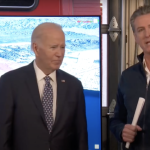David Inserra
David Inserra
Meta just made a big announcement that it will be making a series of significant changes to its content moderation regime in service of greater expression on Meta’s platforms. These changes should be largely celebrated as they contribute a far more vibrant culture of free expression online.
But it’s also worth examining the talking points to more clearly understand what Meta is doing next and how impactful these changes will be. Meta CEO Mark Zuckerberg laid out six ways that Meta will be changing to better favor free expression:
Replacing fact-checkers with community notes. Zuckerberg didn’t shy away from the hard truth here. While fact-checkers might have been conceptualized as a well-meaning way to give users better information and combat the threat of misinformation, the reality, argued by many and finally affirmed by Zuckerberg, is that the fact-checkers have been “too politically biased and have destroyed more trusted than they created.”Zuckerberg is exactly right. Meta’s fact-checking system turned fact-checking decisions into labels and demotions of content. The age-old problem, though, is “who watches the watchers?” Fact-checkers were comprised almost entirely of left-leaning academics and media who felt it was appropriate to moderate away false or misleading content. Free speech advocates and conservative voices did not join the program, and since arbitrating misinformation is often a subjective process, the fact-checker’s own biases were an inherent part of the process. Furthermore, the fact-checks couldn’t meaningfully be appealed, meaning that fact-checkers were effectively unaccountable private censors. Rather than building trust, such a process only undermined faith in expertise and created more problems for Meta. In place of top-down fact-checking, Meta has proposed adopting the Community Notes program used by X that harnesses the deliberative power of users across the political spectrum to identify helpful information and context. It’s not a perfect system, » Read More
https://www.cato.org/blog/meta-makes-major-moves-advance-free-expression-its-platforms





